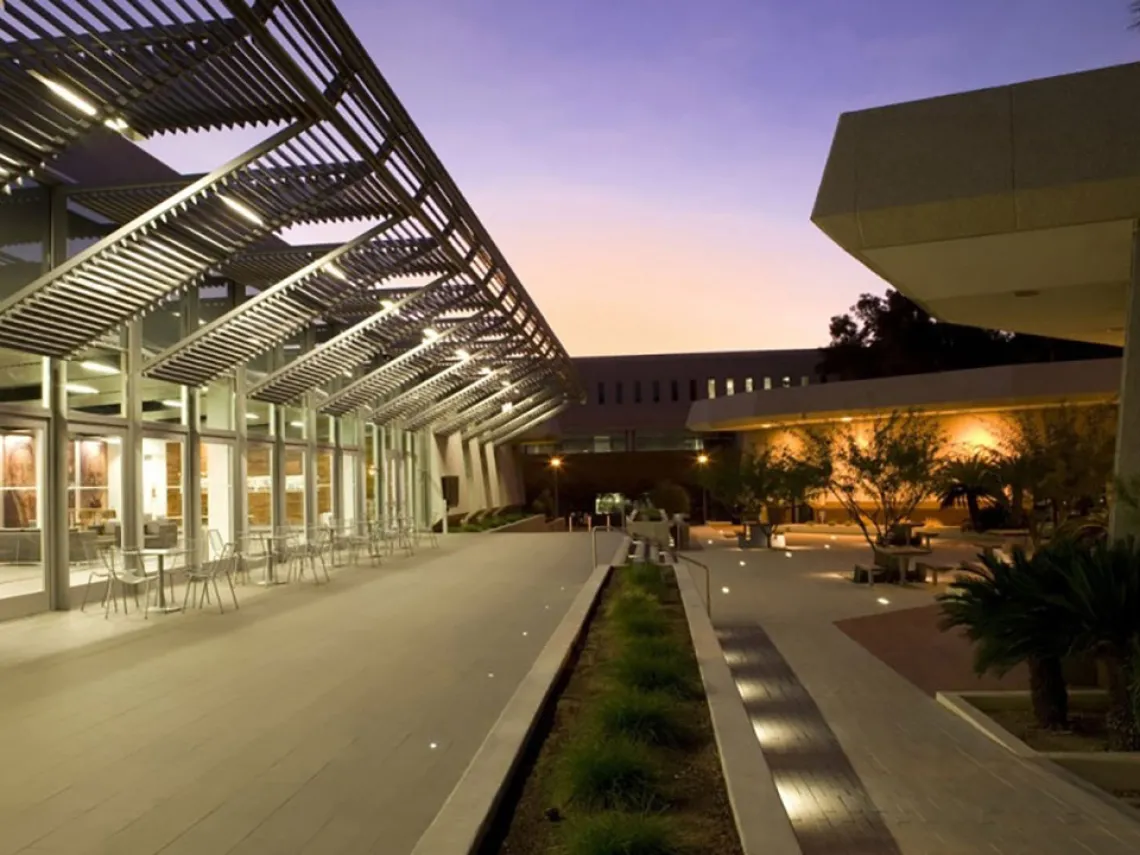Legal Scholars, Judges Convene at University of Arizona Law for Torts Symposium

Are canonical tort decisions a thing of the past? Or are contemporary judges continuing to play an important role in shaping this area of common law? In mid-April, nearly 30 presenters—tort scholars from three continents and state supreme court justices from several states—gathered at the University of Arizona James E. Rogers College of Law in Tucson, AZ, to discuss these topics and more at the symposium, “Reinventing the Canon: Great Torts Cases of the 21st Century.”
A foundational subject in private law, tort law involves injuries or harm caused by one person to another, which can result in legal liability for the person who caused the harm. Examples of torts include personal injuries, property damage, defamation, and wrongful death. The main goals of tort law are to provide accountability for wrongful conduct that causes harm, to deter wrongful conduct, and to provide a remedy to those who have been harmed.
The Torts Symposium was a collaborative effort by the University of Arizona College of Law, Harvard Law School, the Oxford Law Faculty, the Center for the Philosophy of Freedom, the American Law Institute, and the Journal of Tort Law.
“Presenters discussed a wide range of tort law topics. The most emphasized was the duty of care that people owe to others, which is one of the most important legal issues that judges decide,” said Dan B. Dobbs Professor of Law Ellen Bublick, the lead organizer of the conference.
Vice Chief Justice Ann Timmer and Justice Clint Bolick from the Arizona Supreme Court, Judge Andrew Hurwitz from Ninth Circuit Court of Appeals, Justice Todd Eddins from the Hawaii Supreme Court, and former Justices Laura Denvir Stith from the Supreme Court of Missouri, and Thomas Balmer from the Oregon Supreme Court, moderated panels and offered their varied perspectives throughout the conference.
“One of the things that made the conference work so well was the collaborative environment. It was a dialogue, a conversation,” said Bublick.
Panel topics discussed over the two-day symposium included police negligence liability; internet-related liability in privacy torts, property torts, and strict products liability; negligence and duties to protect; and causation and damages.
“Catherine Sharkey from NYU School of Law spoke about liability of Amazon as a seller for purposes of products liability law. She raised important issues that really engaged others and created an important dialogue,” said Bublick. “My junior colleague Shefali Milczarek-Desai was a standout, she really hit the presentation and analysis out of the ballpark.”
Milczarek-Desai discussed Escamilla v. Shiel Sexton Co.; a legal case that concerns damages paid to undocumented workers who have been injured. The subject has been an important issue in recent drafts of the Restatement Third of Torts.
Following the final panel attendees explored the Catalina Mountains, deepening conversations on topics discussed over the course of the symposium.
“It is impossible to hike into the mountains without thinking of things in a broader way. To have all these outstanding people engage in conversation in our beautiful desert environment was one of my favorite parts of the conference,” shared Bublick.
Scholars will publish papers on the topics presented during the Torts Symposium in the Spring 2023 and Fall 2023 editions of the Journal of Tort Law, the leading peer-reviewed journal. Bublick and Greg Keating (USC Gould School of Law) are co-editors of the journal.
“I hope this conference is one point in a broader dialogue between judges and scholars,” says Bublick. “Conversation across these groups is essential because common law scholars need to think about the constraints that judges have to navigate when deciding cases. Judges can also benefit because they have so many different issues on their plate, they’re resolving so many questions, that they may not have the broader perspective of tort history, development, and decisions from across the country and the world. Understanding that bigger picture can help judges resolve individual questions.”
Bublick says that she and Keating will continue to plan future symposia, both virtual and in-person at various locations, on topics that are important in the torts field but might not be at the forefront of general conversation.
Special thank you to Greg Keating, Saura Masconale (Freedom Center), John Goldberg and Henry Smith (Harvard Law), James Goudkamp (Oxford Law), the American Law Institute and Dean Marc Miller. Without them “Reinventing the Canon: Great Torts Cases of the 21st Century” would not have been possible.
